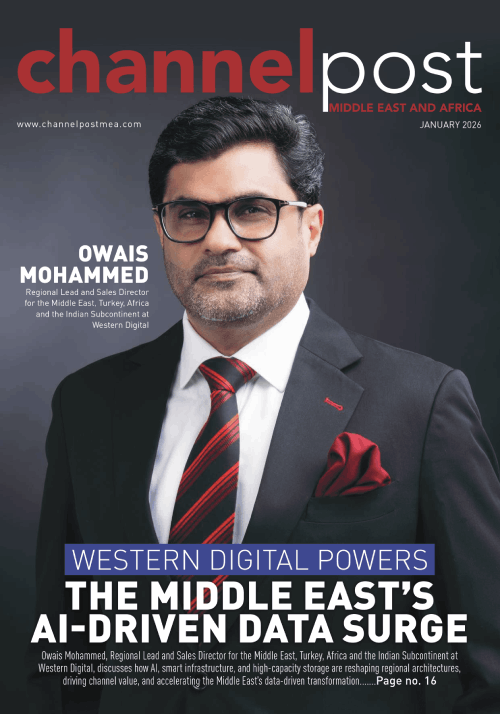Channel Post MEA speaks to Emmanuel Payraud, the Vice President Banking and Retail for Middle East and Turkey at Gemalto to find out the future prospects for NFC technology in the Middle East region.
 Do you think mobile contactless payments are ready to take off in the Middle East region and what is the current state of the NFC market regionally?
Do you think mobile contactless payments are ready to take off in the Middle East region and what is the current state of the NFC market regionally?
With a young population, a booming bank-card market, high levels of mobile phone usage and a dynamic economy, it’s no wonder Turkey was the first country to launch NFC back in 2010, where mobile phone operator AVEA partnered with Garanti Bank to launch their BonusluAvea NFC service and mobile operator Turkcell launched of its Cep-T Cüzdan platform.
NFC services first focused on payments and as the services developed they began to include transport and loyalty. Turkey is well known for being very advanced in the use of mobiles for payments and transport.
Gemalto actually carried out a survey last year and the results showed that 13% of Turkish respondents are already using these types of contactless services. This is quite a significant adoption rate, whether it is transport to commute into the city or for payments.
Then, the second hot spot in the region is of course Dubai, where RTA announced they will be releasing NFC ticketing services this year, so this is the transport side of it.
If we look on the end users’ side, customers are ready to adopt the technology. As a recent survey we ran in Dubai showed, 85% would ‘like’ or ‘love’ to use their handset as a contactless payment method for goods and services.
Payment applications in shops and at vending machines ranked the highest, yet other popular mobile contactless applications cited included e-Loyalty programs to automatically collect vouchers and discount at shops and safeguard them on a mobile wallet.
NFC e-ticketing also emerged as a favorite, reinforcing the support for RTA in Dubai, which is in the process of deploying just such an application with leading mobile operators in the region.
The ability to download e-Tickets for theaters, concerts and sporting events, together with mobile NFC based identity and access badge in the working place, rounded up the top 5 most desirable mobile contactless applications.
What are the biggest challenges facing widespread adoption of NFC payments in the Middle East?
NFC standards have been defined and the technology is there, available, meeting all the required security standards and certifications levels. However, and like anywhere else in the world, the introduction of new technologies and NFC services to the market takes time as it requires the adoption of local ecosystems and business models involving many players such as banks, transport companies, telecom operators, retailers, merchants, OEMs etc.
The beauty of NFC is that the whole payment technology system is interoperable, everything has been standardised by industry groups such as Global Platform and EMVCo to ensure consumers can enjoy a seamless experience everywhere they go. So, NFC will rely on a very strong interoperable baseline.
The main challenge is still the contactless infrastructure at point-of-sale and other readers for the field. The migration to NFC-enabled POS infrastructure doesn’t happen overnight, however, banks are committed and if we look at the latest reports from ABI research, 85% of POS terminals will support contactless payments in 2016.
This means that in the coming years, the world will be more and more able to enjoy NFC services everywhere and NFC technology will increasingly demonstrate its full potential, addressing the masses and being available anywhere, anytime.
For NFC to become commercial we also need a strong partnership between banks and mobile operators, usually if one party tries to do it alone, it won’t be a success, when they decide to partner, projects can achieve the necessary scale to be attractive for the consumers.
Now for the crucial question – How secure is NFC and do you think banks and consumers concerned about safety?
NFC in itself is just a communication channel, and when NFC technology is being used for payment applications, security is of course a central element and as a leader in digital security, we, at Gemalto, do take this aspect very seriously by providing mobile operators with highest level of secure solutions.
Our Trusted Services Platform along with our Upteq NFC SIM cards, which store the consumer’s payment credentials and the payment applications, have all reached the highest level of security standards defined by financial authorities and have been certified by MasterCard, Visa and Amex. We can therefore say that NFC payment using a dedicated security device like the SIM card offers the same level of security as contactless banking cards.
Security is key if you want people to trust the technology and use it to achieve mass adoption and results of a recent street survey we ran in Dubai are very encouraging as 72% of the respondents see no obstacle at all in the use of mobile NFC. One of the other notable findings of the survey show very few respondents, only 5%, cited concerns over security as an obstacle to using contactless payment.
People are getting more aware of the technology, only 16% of respondents had never heard of it before. The numerous deployments of NFC and contactless cards around the world have largely contributed to educating the market, making people more accustomed to those new payment means, and more trusting of the technology, replacing initial skepticism by a simple desire to start taking advantage of the benefits.
The feedback suggests that the momentum behind contactless payment technologies in the Middle East is reaching a tipping point, and it is no longer an “if”, but rather “when”, it will become a part of everyday life. Historically, the region has retained a strong attachment to cash: over 75% of transactions are completed in this way.
With contactless payment terminals coming to the market, soon the gentle tap of a phone or card will increasingly provide a truly compelling alternative for consumers over their long held attachment to notes and coins.












